Why is it that any time you hear the words “calorie counting” or “food journaling”, people start running for the hills? If creating meal plans, counting calories and keeping a food journal are research-proven, effective tools for nutrition awareness, education, motivation and accountability (they are), then why is there so much resistance to it?
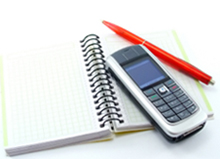 One reason is because it’s perceived as work and hard work doesn’t sell! Another reason is that skeptics say, “What about intuitive eating?” “What about people who lose fat without counting calories?”
One reason is because it’s perceived as work and hard work doesn’t sell! Another reason is that skeptics say, “What about intuitive eating?” “What about people who lose fat without counting calories?”
Sure, you could choose not to count calories and eat what you “feel” your body is asking for, but if you do, that’s called guessing. If you guess correctly and eat the right amount, you lose weight. I would call that luck! Would you rather roll the nutritional dice or bet on a sure thing?
Nutrition journaling and or meal planning replace guesswork with precision.
Perhaps even more important, they are also crucial parts of the learning process to raise nutritional awareness. There’s only ONE WAY to truly understand food and how it affects YOUR body: You have to go through all four stages of the learning process:
Stage 1: Unconscious incompetence – you are eating the wrong foods in the wrong amounts and you’re not even aware of it. (You don’t know what you’re doing and you don’t know that you don’t know what you’re doing)
Stage 2: Conscious incompetence – you are eating the wrong foods in the wrong amounts, but for some reason, you now become aware of it. This is often because of a “hitting bottom” experience or an “I’m not gonna live like this anymore” epiphany. (You don’t know what you’re doing and now you know that you don’t know what you’re doing!)
Stage 3: Conscious competence – you educate yourself and begin to eat the right foods, but it takes a lot of thought and effort to eat the right things in the right amounts. (You know what you’re doing, but you have to think about it and work very hard to make it happen because you’re using willpower and still learning)
Stage 4: Unconscious competence – you’ve made the conscious effort to eat the right foods in the right amounts and you’ve counted calories and kept a nutrition journal for long enough and with enough repetition that these behaviors become habits and a part of your lifestyle. (You know what you’re doing and you do it easily and automatically without having to think about it).
I think the concept of intuitive eating has merit. If we listened to our body’s true signals, I believe that our appetite, our activity and our body weight would properly regulate themselves. The problem is, in our Western, technologically-advanced culture with an obesogenic environment, a sedentary lifestyle, social pressure and food cues tempting us at every turn, our intuitive bodily wisdom constantly gets short-circuited.
In our modern society, being able to eat by instinct and successfully guesstimate your nutrition or trust your feelings of hunger and satiety are not things that come naturally or easily.
The only sure-fire way to reach that hallowed place of unconscious competence where eating the right foods in the right amounts becomes automatic and you truly understand YOUR body is by going through the nutrition education process.
Two simple ways to count calories and get this nutrition education you need are the meal plan method and the nutrition journal method.
The Meal Plan method
Using software or a spreadsheet, create a daily meal plan meal by meal, with calories, macronutrients and serving sizes calculated properly for your goals and your energy needs. You can create 2 or more menu plans if you want the variety.
Then, follow your menu plan every day. You simply weigh and measure your food portions to make sure your actual intake matches your written plan.
With this method, you really only need to “count calories” once when you create your menus. This is a method I use and recommend in my Burn the Fat Feed The Muscle Book and Burn the Fat Online Body Transformation Program.
The Nutrition Journal (Food Diary) Method
Another way to track your nutrition intake is to keep a nutrition journal or food diary, either on paper or with an electronic device, software or website. This is more like “calorie counting” in the traditional sense.
Throughout the day, after each meal, you log in what you just ate, or at the end of the day, you log in all your food for the entire day. The former is the best option, since people seem to get really bad cases of “eating amnesia” if they wait too long before writing it down.
I recommend counting calories and keeping a nutrition journal at least once in your life for at least 4-12 consecutive weeks or until you achieve unconscious competence. At that point, journaling and calorie counting become optional because habit and intuition take over and you can estimate portion sizes more intelligently.
You can come back to your meal-planning and journaling any time in the future if you slip back or if you have a very important goal you want to work on. It’s a tool that will always be there for you if you need it.
What do you think? Are calorie counting and intuitive eating mutually exclusive or does the former lead to the latter? What do you do? Count calories? Count portions? Successful intuitive eater? Used to count and now unconscious competent? Would love to hear from you. Post a comment below.
Tom Venuto
Author, Burn the Fat, Feed The Muscle
Founder & CEO, Burn The Fat Inner Circle
PS. In my new Burn the Fat body transformation program, which is now an online course and part of our Burn the Fat Inner Circle (free for all our current Inner Circle members), I take you through the conscious learning process in just 7 days, one step at a time. If you’re not a Burn the Fat Inner Circle member already, then read my fat loss report to find out about the 1 big fat loss mistake you want to avoid, the 4 crucial elements of body transformation and then get details on the new 7-day program and Burn the Fat Inner Circle: www.BurnTheFat.com
Tom Venuto is a natural bodybuilder, fat loss coach, fitness writer and author of Burn The Fat, Feed The Muscle. Tom’s articles are published on hundreds of websites worldwide and he has been featured in Muscle and Fitness, Men’s Fitness, Oprah magazine, The New York Daily News, The New York Times and the Wall Street Journal. He has appeared on dozens of podcasts and radio shows including Sirius XM, ESPN-1250, WCBS and Day Break USA. Tom is also the creator of the new Burn the Fat Body Transformation System and the founder and CEO of the premier fat loss support community, the Burn The Fat Inner Circle.

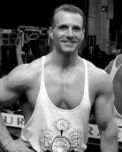

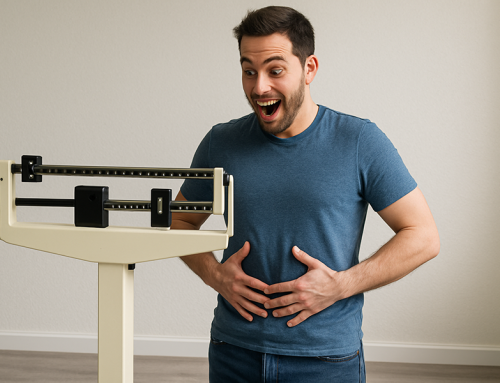
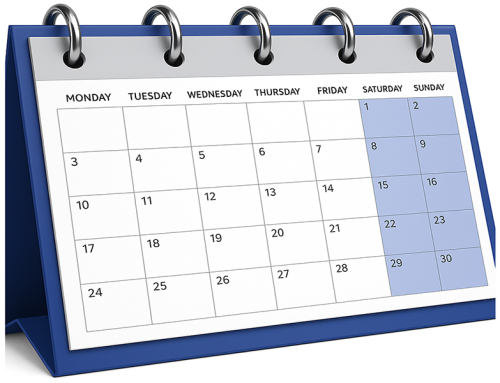
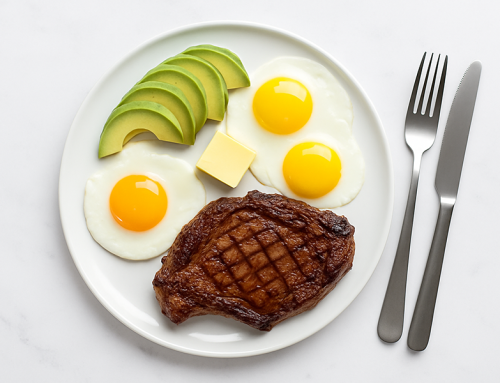

Yes! I have been calorie counting for three years and now its a seamless part of my life. People balance their checkbooks but can’t track calories? Please!
This is dead on, thanks Tom! I’m sure I’ll be printing this one off for my clients to read. As a personal trainer, one of the first things I do with my clients is have them begin a food journal. I usually recommend http://www.fitday.com because it is free, but I know several people who use ipod or iphone apps that they love. And there’s always a good old note book and pen. It doesn’t matter how you do it, but that you actually do it and follow through. I personally still log my food because even though I don’t have any weight to lose, I am still finding holes in my nutrition and can correct them before they lead to problems. I would never leave my goals to “chance” or try to “guess” my way to success. Thanks for such a well written post about this!
I would just like to put in a plug for Fitday.com. It’s not only a calorie-counting aid website, but you can also keep track of your energy levels and moods day by day, and journal your progress (or lack thereof)! It’s also got graphs for percentages of protein/fat/carbs, and best of all it’s free!I have noticed that my problem is dining out. Not only is it difficult for me to practice great portion control, it’s also hard to extrapolate every ingredient from the dish or dishes (usually DISH, Tom!) I order to convert to my eating diary.Presently, I’m at the ‘conscious incompetence’ (AKA: DENIAL!) level, with brief forays into the “conscious competence’ arena, and I credit fitday.com for my transition, because I definitely started out at unconscious incompetence, although on some level I think I really knew in my heart of hearts why I wasn’t ‘able’ to lose weight!Thanks once again, Tom, for your straight shooting. I always look forward to receiving your newsletters.
Just a note about Fitday……it only supports Apple mobile devices by the looks of it…..Booooooo! MyFitnessPal.com however is supported in three.
I’ve been keeping a food & workout journal since Sept. 2007, when I started the BFFM program. It truly keeps me motivated.
Just thought I’d add my two cents. Currently I don’t keep a journal and eat what I feel like I need. But about 2 years ago I read BFFM, and for three months I kept a journal, in excel.The excel spread sheet contained exactly which food I ate and the respective amounts of each food, my daily calorie intake, water intake, exercises done, and a comments section about each day – which ultimately became the feelings section of the spread sheet.After this three month period, I went on holiday for a long while and never picked up the habit again, but in those three months I learnt TONS about what are good foods and I also learnt exactly how to listen to my body(Thirst VS Hunger ect). My body now “feels” more intelligent towards foods, and in a group pressure situation(The Pub), my mind can intelligently overrule my feelings.I only use the journal these days during really tough and stressful weeks where work and pressure sometimes make you lose focus. It’s invaluable to keeping me on the right track and educated. The weightloss journal becomes my diary during these times so that I can keep track of all emotional, work, monetary and other influences in my life that could impact my weightloss.Thanks for the great articles Tom! Always an informative and good read.
Tom. Being a coach at the local commuinty centre i get some trainers ask me how to get in shape/the things i tell them are count your calories and train to burn the calories and get a bit shape to the body/ everbody cannot be a Arnie but they can make the most of what they have got. Your newsletters are good – they tell it as it is. All the best tommy
Hi Tom,It’s long debate whether one should count calories. But as you know, one can’t fight the law of energy balance. If one doens’t see results, logging (very precisely and accurately to the ounces) for a minimum of 7 days or preferrably 4 weeks or longer. It helps smooth out any day to day fluctation.It works.
I read your free 12 part mini course and I already changed a little my exercise program. You speak the truth about pills and so called miracle nutrients that are sold by the lots of companies. I appreciate your courage. This article also really helpful and once again, the truth. You can tell you speak from years of years experience. I want to thank you again for sharing your knowledge with usBest wishes
I have made much more progress since I started keeping a food and training diary each day. I weigh or measure everything to keep track. It makes it so much easier to see what is going right or wrong and tweak the food in the right direction.
“I think counting calories and intuitive eating go hand in hand. Personally, I prefer portioning to “eyeballing it” whenever possible unless I am absolutely familiar with what a particular food looks like in a particular portion, especially whenever my amounts or portions change. It’s so easy to just scoop out the portion with a measuring cup or throw something on the scale. Measuring has become a habit. Every little bit counts…”
Even after having weighed everything that goes into my mouth for over three years now, I still can’t guess the weights of foods and I can’t guess portions. My guesses are always wrong and so are my portions. For instance, a spoon of oats turns out something between 5 grams and 20 grams. That’s a huge difference. I only trust my kitchen scale
sparkpeople.com is an excellent free calorie and fitness tracking website. I recommend you put a link on your website. Check it out.
I have recently come to the conclusion that not counting calories is the last hurdle I must over come in order to lose weight and body fat. I exercise frequently and hard (6-7 times per week) and eat consciously, making healthy and balanced food choices. Yet all I am managing to do is maintain my weight. There is no doubt now in my mind that the next, and last, step to achieving fat loss is to start counting calories. Calorie counting educates you and makes you aware. Very aware.
Tom,I used to weigh, measure and count every calorie I put in my body. I dont do that anymore. I eat smart and I eat when my body tells me to. Eating smart for me is watching my portions and eating food that fuels my body. I have been exersising 5-6 days a week for the past 7 weeks and I have changed my nutrition. My beginning weight was 224lbs and I now weigh in at 206. Ive gone from a size 18 pant to a size 16. I talk to myself all the time (and I mean all the time) telling myself to make good healthy choices and move my body. Its basic. Just like how you teach in your book “The Body Fat Solution” My son bought it for me this last Christmas and its been a life changer. Bottom Line, Im cognitive of how I treat my body. Garbage in,Garbage on.
As a small business owner I have to know where I’m at (tracking sales, profits, etc) in order to be successful. Nutrition for your body is more important because without your health, nothing matters. Count your calories,keep maintenance records and add some calories when you increase your activity.remember food is fuel for the body so you got to be efficient to succeed.
Hi Tom, I made a major lifestyle change in Jan 09, changing something once a week until I achieved the overall change I wanted. The first thing I introduced was calorie counting and have not stopped since. I don’t find it difficult – it has become part of my everyday life. Every bite of food that goes in my mouth is accounted for and it pays. I feel from experience so far nutrition has been the cornerstone of my successes so far
I think it can go either way. I have to count calories; if I don’t I consume over my natural calorie limit. I’ve been counting cals. since around 2004 and every time I stop counting; i gain. I wish I could intuitively eat the correct amount even after years of counting but I don’t. On the other hand I know people that counted cals. for a while and then they knew their set limit and now they are able to unconciuosly eat the correct amount.I set up meal plans in diet tracking software and try to stick with that amount of consumption. I am still blown away by the amount of calories in food and how many calories I can take in when I’m not being careful and diligent. I’d say well over 2500 approaching 3000 if I’m having a major food bender. My normal cal. range is 1500! So, count calories I will for as long as it takes.
“i have gotten to the point where I have certain meals and even days memorized as far as portions and cals go. But I had to do the initial “work” of counting them up, setting up my diet, and recording it. Plus, every now and then I have to adjust my TDEE based on weight loss and changes in activity levels. So I would say cal counting can become intuitive in that it becomes a habit, like Tom said, or even memorized.
“I stopped weighing and measuring last year. Result put on weight, ie FAT. So last 2 months have gone back to weighing and measuring, plus documenting in my book. Keeps me honest and started losing fat again. I also see what works best for me and if I have eaten enough protein, fruit and veg. Love your recipes Tom. Printed them out and have files to check now.Some people think they can pop a pill, eat what they want and not exercise. They are the ones losing out. I eat my salad, sardines, fresh fruit salad and home-made yoghurt at work and watch the overweight ones eating white bread sandwiches and hot chips. I am the winner there.”
I don’t always count calories, unless I know that I’m gonna be eating something calorie dense. I will on occasion put something back on the store shelf though, if I feel like there’s way to many calories per serving and it won’t satiate. It isn’t a bad idea to count, but I don’t do that often sometimes I can just estimate, seeing as it’s hard to when I’m eating whole foods.Joe
I like your 4 phase approach, Tom…I’ve been at each one!!I’m now phase 4.I’ve done the “food journal” thing as I lost my 120 lbs. I did it online and in public for accountability. I also entered foods after I ate them. I did this daily for 20 months as that is how long it took me to make my goal weight and it is now a written record for all to see.But more than that, it taught me in the “practice makes perfect sense”…how to eat for my body. I never knew how to eat before I did this.After I got to my goal weight, I started to feel like it was time to let go of the food journaling…..and I was scared to do that. Scared that I’d revert to my old crappy eating habits. But that daily journaling had taught me more than I realized…I had new good eating habits now.That was more than 4 yrs ago now….I am a successful maintainer!! I am what you call an unconscious competent eater otday…and proud of it!! It could easily be seen as intuitive eating but I had to teach myself many things first…and that was not intuitive at all…it was do that ….or die!!
“I don’t think you can intuitively eat without some form of calorie counting. This is particularly true when it comes to eating out. I am learning that so many foods are deceptive in their calories. Case in point. A simple GRILLED shrimp and spinach salad at Applebees seems like a good choice for intuitive eating. That is, until you learn that some how they manage to take a low fat protein and complex carb and turn it into a ticking bomb. That salad, as prepared, is over 1,000 calories.
For me, I have to count calories so I can accurately zig zag my calorie intake. There is no way I could zig zag without counting calories. I could never be precise enough in my head with out tracking them mechanically. When I am working on maintaining my weight, I don’t usually mechanically track them (in the spring, summer and fall). Then in January, I usually see that I have gained a few pounds ( I expect it cause I know I eat more around the holidays…yum yum, I love life)…. Anyway, then in Jan, I make it a hobby during the winter months to set a goal and know how much I want to loose, track my calories then accomplish it! How invigorating !!! I have had to monitor my weight since I was young ( I am now pushing 50) and have never gone over a size 10 (never been a fitness model either, nor do I aspire to) lol!You couldn’t have said it better yourself!! “You are a unique individual and no single approach could possibly work for everyone” (Chapter 4, Page 76 BFFM). I realize you were talking about something else however, I believe that this applies in this situation. Give it a shot and if it works for you, do it, if not, try something else until you find something that works and use that to successfully meet your goal (written down of course!)!!
Tom,You are right on the mark. When I was struggling with my finances I tracked every penny I spent for an entire month. It helped me identify where I needed to control my spending. I applied this same logic when I made the decision to get my diet under control. I journaled everything I ate and it was shockingjust how much I was eating. Now it has just become second nature for me to journal every day. I made a spreadsheet that breaks foods out by category so when I eat something I just copy and paste all the nutritional information. The only time I have to input a food is when I eat it for the first time. As you get more consistent withyour journaling you will be able to identify ways to make it easier for you to track.
I started the Burn the Fat Feed the Muscle program on January 1st, and I have lost 16 lbs of primarily fat since then. I am completely overjoyed with my results. I have finally found a program that has given me control over my body. I count my calories religiously using fitday.com. I also measure all of the foods that I possibly can to make sure that I know how much I am eating. And, it works. You cannot argue with results. Of course, I am also exercising 6 days per week…3 days weight training with some cardio using the turbulence training system and 3 days running. However, all that said, I now have a good intuitive feel for food quantity and quality when I have to make food choices in restaurants when I travel. I still log every meal on fitday.com in those cases, but I have to estimate amounts using my judgment and experience from meals I have measured. So, I say counting calories is KING and should be done by everyone concerned with their body composition.
Hi Tom,I’ve written a food journal and counted calories for years. I prefer the old fashioned pen/paper routine but I also have used Fitday.com. The few times I’ve given up on my journal, I tend to go way off track. Having it written down gives me accountability plus a real view of what’s really going in my body.
Tom,From your advice and after reading your book, I have lost over 80 pounds in a year. I did that all by counting calories and working the 6meal a day plan with a lot of exercise and hard work. But i have to say, now that I am around my goal weight and working more to maintain then loose, I have found intuitive eating to be both more pleasurable, and understandable. So that being said, I think they both have pros and cons, but they both have their own place in a weight loss and maintenance plan, and are therefore separate.Thanks
As always Tom you are right on! I dropped 40 pounds a couple years ago and have kept it off (I’m 54 years old). I record my weight and exercise daily; and I keep a daily food journal where I track my food intake and associated calories. Recording and monitoring keeps me honest and on track. When I see my weight creeping up, it always correlates with increased food or decreased exercise and forces me to get back on track quickly. Its harder to make excuses (“its only water weight”) when you have the facts staring at you!
I hate hate HATE counting calories, points, or any kind of tracking or dieting system. I’ve always known how to eat healthfully, I just never did it because I like cheeseburgers. So when I decided to, I went straight from “conscious incompetence” to “unconscious competence.” I lost 80+ pounds (40lbs or so left to go) and increased my fitness level dramatically, just by eating intuitively & exercising — I eat mostly fruit/veg/grains/beans/lean protein, have a couple “free” meals a week, and work out 3-5 times a week. I also weigh myself every couple days — it keeps me honest.
I NEVER was able to get lean until I started to weigh every gram of food I put in my body. Now I’m able to manage it much more effectively and efficiently. Still, if I’m going to ‘lean down’ I depend on counting calories by weighing and measuring EVERYTHING and it works every, single time.
I am a firm believer of calorie counting. It just takes some getting used to. Once you master it, it becomes second nature to you. The beauty of calorie counting is that you can employ elements of that system to whatever dieting method you so choose.In other words calorie counting is a transferable skill that educates you about whatever morsel of food you are about to eat today, tomorrow and in future.
That is the exact method my dad used to teach me to drive a car!!! It was like listening to him… and I never forgot the lesson. It is very logical that first you have to know what to eat consciously in order to think or perceive food correctly, of course if we se an add that says “Hungry? Grab a snickers!!!” we’re going to think “hey, I’m hungry, it is not chocolate cravings… I think I’ll grab one… there’s peanuts in it so it must be nutritious” and so on. If you do not know consciously what is it that is making you fat, how are you going to change it?Great article.
i was on stage 3 for many years. About 8 months ago I begun to train with a personal trainer and he introduced me to meal planning. After about 3 months, meal planning became second nature. But I begun to mixed the meal planning with calorie counting. I honestly believe there is some overlap between calorie counting and meal planning. I was so impressed how quickly meal planning gave me results. Just like any skill, it takes effort, time and practice.
I follow an almost entirely intuitive method, which the exception that i count protein (but only roughly, ie. 500g meat =100g protein) to make sure that im getting enough. The rest is done intuitively by listening to hunger, and making slightly different meal choices depending on whether i want to achieve fat loss or muscle gain.However, i think that a period of calorie counting should come first to gain awareness.
I have never understood people downright refusal to plan meals. With the availability of online food journal systems, watching the caloric and macro-nutrient make up of your daily meals has never been easier. All the “math” is done for you all you have to do is click what you ate.
I am definitely in Stage 3. I am eating healthier foods, but I really have to think about it, and discipline myself to continue eating healthy.
I haven’t kept a food journal since about 4th grade when we had to for a class. Even then, I remember just filling it out the day after so Im sure half of what I wrote was wrong.
I’m gonna give it a shot, just to see how it goes. It hink that will work better for me than meal planning, since there are too many times my wife and I eat something we hadnt planned for.
Hello tom , thanks for this grerat article , i have a question about sugar alcohol like Maliltol and glyceRol , since there are some protein bars that says the net carb is only around 5 g of carb , saying that not all carbohydrate have the same effect and they substract the fiber and sugar alcohol from the overall carbs and what remains is only around 5 g of carb , since iam a student and i have a heavy schduale the protien bars are the best choice for me but i would like to get your throughts on that and in the net carb thing they even have website about it and its a well known brand of supplements
Best wishes
Dear Tom,
After I had read the BFFM, I found my little old calorie book I had used once a very long time ago. So I started to design my new menus :) However, I realised that some products I consume are missing. So, I found this site http://nutritiondata.self.com/ on the Internet, which I believe is fantastic. It shows not only plain numbers of calories, proteins, carbs and fats, but every single nutritional value (vitamins, minerals, etc.)of each product.
However, when I compare some products on this site with my calory book, I see huge differences which makes me confused and frustrated. For example, flax seeds.
In my book 100g:
calories 375.5
Protein: 24.4
Fat:30.9
Carbs: –
http://nutritiondata.self.com/ 100g:
calories: 534
Protein: 18.3
Fat: 42.2
Carbs: 28.9
As you can see, the difference in numbers is huge. And this is just one example. There are many products with such differences. So… which source to trust???
Can you give some advice on this matter?
Thank you in advance!
Kristine
i like this..its real helpful and for the first time, im making a conscious decision on my food portions and calculations ;)
This is so insightful. I have a question though. I’m what you would call a “food addict” and I’m in a 12 step program that weighs and measures our food. I’ve been counting calories through an app for over a month now and I find that it’s driving me nuts and I’m trying to control every single thing that goes in my body. I feel guilty when I go over my allowance and it fuels the “control” and same cycle ive been in my whole life.
On the other hand I agree 1000% with not guessing it and knowing where you stand in order to know where you have to go.
For someone like me, with an addictive personality, or food “addiction’, what would you recommend? I can’t seem to combine intuitive eating with counting calories. It’s all or nothing for me….
Some support would be amazing. Tired of living in my head about this!
Dear Tom, Thank you for your knowledge and honesty and exposing the truth about all these scams and frauds that people fall into. I have been following you for a few years now and other than perhaps some of my favorite doctor guru’s out there, your information is equivalent and up to par with their information. I have relied on your expert advice on nutrition and fitness for some time and I continue to do so. I have never tried Acai berries only because when something sounds to good to be true, it is usually so. I buy organic and local when possible, food doesn’t is often more nutritious than having to travel to get there and I thank you again for making our audience aware being scammed. Sincerely, Noreen Wilkins
I’m a huge proponent of the meal plan strategy. Calorie counting is extremely educational. Using a meal plan is proactive and sets you up for success. Whenever I mention it to people they look at me sideways, but it makes the food piece really easy. I cook for the week on Sundays according to my plan. It doesn’t take long at all. I eat the same thing every day, which is boring to most people but efficient for me. This approach eliminates factors that usually play into other people’s decision making about food, like willpower and finding time to cook. I’m glad to hear that someone else advocates this approach!
I have used the calorie count method along with exercise and it works! Once you get your favorite foods/meals set up it doesn’t take too much effort. I lost 100lb doing this and now that I’m maintaining I still use it on occasion if I find myself getting off track. I’ve maintained my weight loss this way for about 7 years now.
Hi tom I have been following your shred fat build muscle plan for a month now it’s fab I have reached the point where I’m happy with my fat loss but now need to build muscle in my legs do you suggest I up my calories from 1,500 to build the muscle I’m just nerves I don’t want to gain the fab back on ? I weight 147 pounds!
Thanks
Tina
Hi tina – just bring your calories up SLOWLY from their current level – a little bit per week over a few weeks, to allow your metabolism to adjust, and then once you are at maintenance, then try a small surplus approx 10% over maintenance if you want to gain lean muscle. Also remember, as you increase calories you might see increase in body weight, but it may not be fat – it may be glycogen and lean body weight which is the good kind of weight, and the whole idea. congrats on your results so far, and here’s to more success to you!
Credit where credit is due, I feel that TOMS PRACTICAL WISDOM HAS HELP ME ENORMOUSLY I am most grateful for his guidance, may we all find self mastery and live healthy lives.
sincerely
Lee X
thanks Lee!
I definitely started at stage 1, after about 3 years I found myself comfortable at stage 4 and while I don’t count on paper any more I can give a running tally of the day’s intake :)
I cannot tell people enough about the “magic” of counting calories – I just wish more of them would believe me! haha